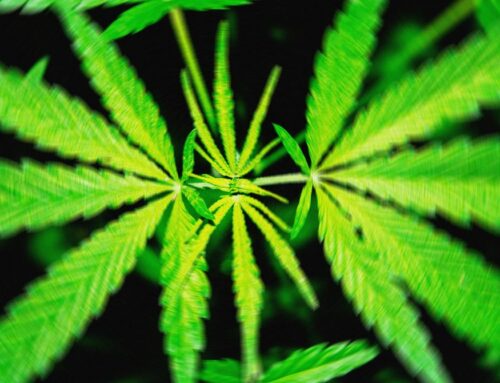Congress Created a Market for a New Kind of Cannabis Drink. Now It Wants to Ban It.
November 12, 2025
A new indulgence has made its way to gas-station shelves and liquor-store aisles in recent years: THC-enhanced drinks, gummies and other products that promise a relaxing marijuana-style buzz without a hangover.
Derived from hemp, such products are available to buy even in states that haven’t legalized recreational cannabis—representing a roughly $28 billion industry that grew out of a provision in the 2018 Farm Bill.
Those products now could be stripped from U.S. store shelves under an amendment to the Senate bill to help reopen the federal government. The change, buried on page 134 of the spending deal, rewrites the federal definition of hemp and would ban the sale of hemp-derived THC products one year from the bill’s passage.
The change has set off alarm bells among makers of the hemp-derived products, who now hope to negotiate a federal regulatory framework that would allow them to stay in business.
“This was pretty shocking,” said Jake Bullock, chief executive of Cann, which produces a low-dose hemp-derived “social tonic.” Although companies always knew that the federal provision allowing them to operate could be closed, many were surprised to learn the change was pushed into a “must pass” bill to reopen the government, he said.
Hemp product makers, Bullock said, can now push for federal regulation in a business where regulations currently vary by state: “It’s unfortunate, but the opportunity here is pretty clear.”
Hemp-derived THC drinks became legal in 2018 through a provision in that year’s farm policy package, which was championed by Sen. Mitch McConnell (R., Ky.). It opened the door for producers to turn legal hemp into psychoactive drinks and other products sold alongside beer and wine in states ranging from Minnesota to Tennessee.
The current spending-bill provision wouldn’t affect sales of cannabis products in states that have legalized recreational marijuana use.
THC—the psychoactive substance tetrahydrocannabinol—is more prevalent in marijuana than in hemp, but hemp possesses trace amounts that can be lab-processed to create other forms of THC. Those can be formulated into higher-THC drinks, gummies, baked goods and other products.
Consumers have been reaching for hemp-derived drinks like Cann and Tilray Brands’ Happy Flower as more Americans forgo alcohol and look to relax without the hangover. That has put pressure on beer and spirits sales, which have seen consumption fall.
A testament to the beverages’ popularity: Target recently announced it would pilot selling THC-infused drinks in stores across Minnesota. Convenience store chain Circle K said it would start selling hemp beverages late this year in North Carolina, South Carolina and Florida.
Up in smoke
The spending-bill measure redefines hemp under the Agricultural Marketing Act to exclude products containing synthetically produced cannabinoids or more than 0.4 milligrams of THC per container.
The new definition places a ban on most hemp-based gummies, vapes, edibles and beverages. Industrial hemp products and nonintoxicating CBD oils under the THC limit would remain legal. The updated definition takes effect one year after enactment.
U.S. Hemp Roundtable, a lobbying coalition supporting hemp and CBD products, said that the new caps would wipe out “95% of our industry,” leaving seniors, veterans and consumers “scrambling for alternatives.”
Traditional alcohol groups have been lobbying in the opposite direction. A coalition of beverage and alcohol bodies—including the Beer Institute, Distilled Spirits Council of the U.S., American Distilled Spirits Alliance, Wine America and Wine Institute—urged lawmakers to keep the ban, and close what they called the “intoxicating hemp” loophole.
Alcohol companies have argued that THC beverages aren’t taxed or regulated in the same way as alcohol, which operates under a strict regulatory framework traced back to Prohibition.
McConnell, who championed hemp back in 2018, has since argued in favor of closing what he has called a loophole that allows psychoactive products to be marketed as legal alternatives to marijuana. “Children end up unknowingly consuming these products,” he said on the Senate floor Monday evening.
McConnell’s main opponent has often been his Kentucky colleague Sen. Rand Paul (R., Ky.), who brought an amendment Monday to block the new hemp regulations. Paul argued they would unfairly target Kentucky’s hemp industry, which employs thousands in the state, and go beyond the goal of reopening the government.
Paul’s amendment to strip the hemp language from the bill failed. He later voted against the overall continuing resolution package, breaking with most of his Republican colleagues.
Clouded future
The hemp crackdown comes after Washington had been edging toward softening its stance on marijuana. The Biden administration had begun working on moving marijuana from Schedule I to Schedule III, acknowledging its medical use.
On the 2024 presidential campaign trail, both President Trump and former Vice President Kamala Harris pledged easing rules around marijuana. Since taking office in January, Trump indicated he was considering reclassifying marijuana as a less-dangerous drug, though he hasn’t yet announced any policy changes.
If makers of hemp-derived THC products can’t negotiate a federal regulatory structure over the next year, Bullock said that Cann could no longer sell its drinks, which range from 1 milligram to 10 milligrams of hemp-derived THC.
He said that since the company’s 2019 founding it has sold 30 million Canns, and that business this year is slated to grow 50% over 2024’s total.
“Our products would become federally illegal and we wouldn’t be able to sell,” Bullock said. “It doesn’t mean Cann would go away, but we would need to rethink.”
Write to Anvee Bhutani at anvee.bhutani@wsj.com and Laura Cooper at laura.cooper@wsj.com
Search
RECENT PRESS RELEASES
Related Post




